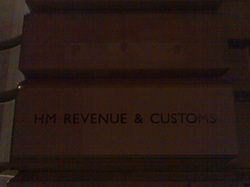 This is a new HMRC Online system that will be introduced from April 2013. It will require employers to file their payroll details with HMRC every month/week before they are able to pay their staff. This means employers will no longer be able to give cash advances to staff which then later deduct from their wages. Currently employers only file a summary of this information once a year which has led to issues in recent years with individuals under or overpaying taxes due to incorrect tax codes. This new system will mean that the information held by HMRC should be up to date and hold accurate details of an individual’s earnings at any point during the year. HMRC claims that RTI will:
Payments and penalties Under the current system of annual filing HMRC are unable to tell if employers are paying the correct amounts of PAYE & National Insurance contributions throughout the year however the new monthly reporting system will enable them to check this. The penalty system was updated in 2010 in anticipation of the new RTI service and penalties will be imposed based on the number payment defaults on a percentage basis. The percentage penalties range from 1% for 2 to 4 defaults in the year to 4% for 10 or more. Employers paying 6 months late will incur a penalty of 5% with a further 5% charged if the payment is 12 months late. HMRC have said that they will issue warning letters for first and second defaults before penalties are issued so that employers are aware of the risk of incurring penalties. Payroll software Payroll software will need to be updated so that it can pass the information to HMRC. All payroll software developers will have accounted for this but you need to make sure you have got the necessary update. If you are not using payroll software you will need to use this going forward, however there is some free software provided by HMRC called Basic PAYE tools that is available for small employers. Alignment process There will be a payroll alignment process before each employer goes onto the RTI system so it is important to make sure you hold all the necessary employees details beforehand (name, address, National Insurance number and date of birth). Owner managed businesses We had been hoping there would be an exemption for owner manage businesses who currently only file an annual payroll return as they are paid below the limits for Income tax and National Insurance. As the deadline is fast approaching and nothing has been announced we have to assume that these businesses will now have to file a monthly payroll return under the new system. This is a big increase in form filling for small businesses when the government had pledged to reduce red tape for businesses. You may find this HMRC checklist useful http://www.hmrc.gov.uk/payerti/getting-started/business-readiness-checklist.pdf
1 Comment
With just over three months to go before changes to Child Benefit entitlement for higher earners comes into effect, it's an ideal time to see how or if the changes impact you.
Those affected are any individual who claims child benefit and has income in excess of £50,100, or a couple where one partner is claiming child benefit and where either partner has income in excess of £50,100 per annum. Only those who earn over £60,000 per annum will lose their child benefit entirely while a couple each earning less than £50,100, they will keep all of their child benefit payments. There is a sliding scale of loss in benefit for income in excess of £50,000. An election can be made not to receive the child benefit, for example where it is known that one income will be in excess of £60,000 and therefore all child benefit would be clawed back. The changes mostly affect high earning employees where often the mother in the relationship stays at home to look after the children. Where an election is made not to receive child benefit, this group, which could comprise over 350,000 women, could lose their National Insurance contributionswhich in turn will impact on their state pension. Contributions over 30 years are required to qualify for a full state pension. Full-time mothers currently receive National Insurance credits towards their state pension in recognition of the contribution that full time parents make to society. However, because of the way the changes have been drafted, it is possible to claim child benefits and then elect to withdraw and, in so doing, the full time parent does not lose NI credits. Clearly, there is a danger that some people will be unaware of this potential trap and because those affected by the new changes will most likely have received their income through PAYE structures, many of them will have had little recourse to consult a technical accountant. This is likely to change for a number of reasons. Firstly the child benefit ‘clawback’is mostly to be made under self-assessment and will therefore mean that many more people than previously will need to complete a tax return. The higher earner in the couple is also responsible for notifying HMRC of their chargeability. Penalties will be imposed by HMRC if this is not done. The changes to child benefit entitlements come into effect on 7th January 2013. |
AuthorLicenced Accountant in Brighton Archives
May 2020
Categories
All
|

 RSS Feed
RSS Feed
